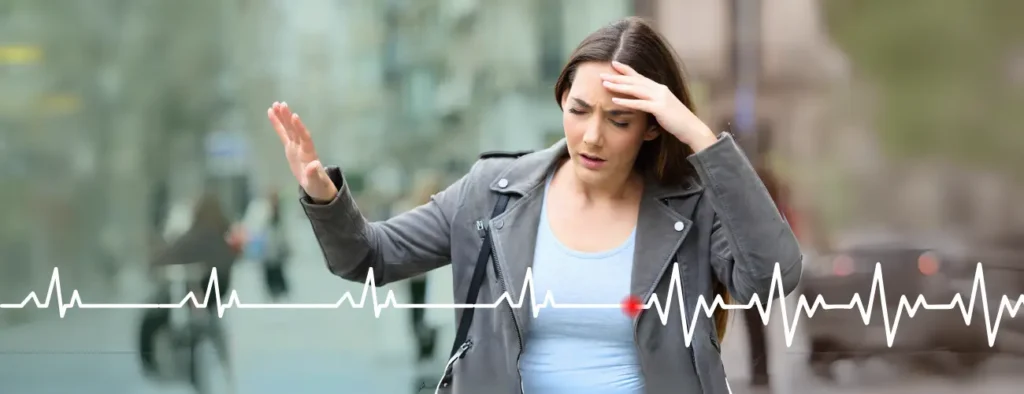TREATMENTS
ARRHYTHMIAS

What is an Arrhythmia?
An arrhythmia occurs when the heart’s electrical system malfunctions, causing an irregular heartbeat. This can result in the heart beating too fast, too slowly, or with an irregular rhythm. Arrhythmias can range from mild and harmless to life-threatening, depending on the type and severity.
How Do Arrhythmias Happen?
Several factors can contribute to the development of arrhythmias, including:
- Heart disease: Conditions like coronary artery disease, heart failure, or heart valve problems can increase the risk.
- High blood pressure: Uncontrolled high blood pressure can strain the heart and lead to arrhythmias.
- Thyroid disorders: Overactive or underactive thyroid glands can affect heart rhythm.
- Electrolyte imbalances: Imbalances in minerals like potassium, sodium, or calcium can disrupt the heart’s electrical signals.
- Medications: Certain medications can have side effects that affect heart rhythm.
- Caffeine and alcohol: Excessive consumption of these substances can trigger arrhythmias in some people.
- Stress: Emotional stress can contribute to irregular heartbeats.
Symptoms of Arrhythmias
Not everyone with an arrhythmia experiences symptoms. However, when symptoms do occur, they can include:
- Palpitations (feeling like your heart is racing, fluttering, or pounding)
- Chest pain or discomfort
- Shortness of breath
- Dizziness or lightheadedness
- Fatigue
- Fainting
It’s important to note that these symptoms can also be caused by other health conditions. If you experience any of these symptoms, consult your doctor for a proper diagnosis.
Prevention of Arrhythmias
While not all arrhythmias can be prevented, maintaining a healthy lifestyle can reduce your risk.
- Regular exercise
- Maintaining a healthy weight
- Managing blood pressure and cholesterol levels
- Avoiding smoking and excessive alcohol consumption
- Limiting caffeine intake
- Managing stress
- Regular check-ups with your healthcare provider
Treatment Options
Treatment for arrhythmias depends on the type of arrhythmia, its severity, and your overall health. Options may include:
- Medications: Anti-arrhythmic drugs can help regulate heart rhythm.
- Lifestyle changes: Reducing stress, limiting caffeine and alcohol, and maintaining a healthy weight can help manage some arrhythmias.
- Cardioversion: This procedure uses electrical shocks to restore a normal heart rhythm.
- Ablation: A catheter-based procedure that destroys abnormal heart tissue causing arrhythmias.
- Pacemaker or implantable cardioverter-defibrillator (ICD): These devices help regulate heart rhythm.
- Surgery: In rare cases, surgery may be necessary to correct structural heart problems causing arrhythmias.
It’s crucial to consult with a cardiologist to determine the most appropriate treatment plan for your specific condition.

Om Heart Care is a top-tier cardiac clinic committed to offering heart patients quality and compassionate care. Our clinic was established by renowned interventional cardiologist Dr. Priya Palimkar, who has over twenty years of experience. We are dedicated to providing modern treatments and individualized care.
CONTACT
- +91 9890790780
- info@drpriyapalimkar.com
-
Monday - Saturday
Sunday Closed -
Viman Nagar Clinic
11:00 AM - 02:00 PM
06:00 PM - 09:00 PM
Vishrantwadi Clinic
03:30 PM - 06:00 PM
GET DIRECTIONS
Viman Nagar Clinic
Vishrantwadi Clinic
Copyright © 2024. All Rights Reserved | Designed by DIGIOTREE PVT LTD | Disclaimer | Privacy Policy | Terms & Conditions

